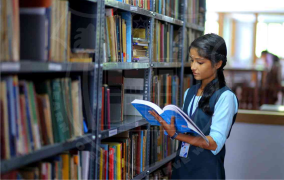CODE OF PROFESSIONAL ETHICS
I. TEACHERS AND THEIR RESPONSIBILITES
Morning Star Home Science College envisages a group of motivated teachers- dedicated to their profession, devoted to their students and committed to the institute. It is assumed that by opting to be a teacher, they take up the obligation to conduct themselves in accordance with the ideal of the profession. The college expects her teachers to partake in the mission of molding generations with thirst for knowledge, trust in values and love for God.
Teachers should:
- Adhere to a responsible pattern of conduct and demeanor expected of them by the community.
- Manage their private affairs in a manner consistent with the dignity of the profession.
- Seek to make professional growth continuous through study and research.
- Express free and frank opinion by participation at professional meetings, seminars, conferences etc. towards the contribution of knowledge.
- Maintain active membership of professional organizations and strive to improve education and profession through them.
- Perform their duties in the form of teaching, tutorial, practical, seminar and research work conscientiously and with dedication.
- Co-operate and assist in carrying out functions relating to the educational responsibilities of the college and the university such as: assisting in appraising applications for admission, advising and counseling students as well as assisting the conduct of the university and college examinations, including supervision, invigilation and evaluation.
- Participate in extension, co-curricular and extra-curricular activities including community service.
II. TEACHERS AND THE STUDENTS
Teachers should:
- Respect the right and dignity of the student in expressing her opinion.
- Deal justly and impartially with students regardless of their religious, economic, social and physical characteristics.
- Recognize the difference in aptitude and capabilities among student and strive to meet their individual needs.
- Encourage student to improve their attainments, develop their personalities and at the same time contribute to community welfare.
- Inculcate among students scientific outlook and respect for physical labor and ideals of democracy, patriotism and peace.
- Be affectionate to the students and not behave in a vindictive manner towards any of them for any reason.
- Pay attention to only the attainment of the student in the assessment of merit.
- Make themselves available to the students even beyond their class hours and help and guide students without any remuneration or reward.
- Aid students to develop an understanding of our national heritage and national goals.
- Refrain from inciting students against other students, colleagues or administration.
- Be good listeners and try to mitigate the problems of students through guidance and counseling
III. TEACHERS AND COLLEAGUES
- Treat other members of the profession in the same manner as they themselves wish to be treated.
- Speak respectfully of other teachers and render assistance for professional betterment.
- Refrain from lodging unsubstantiated allegations against colleagues to higher authorities.
IV. TEACHERS AND AUTHORITIES
Teachers should:
- Refrain from undertaking any other employment and commitment including private tuitions and coaching classes which are likely to interfere with their professional responsibilities.
- Co-operate in the formulation of policies of the institution by accepting various offices and discharge responsibilities which such offices may demand.
- Co-operate with the authorities for the betterment of the institution keeping in view the interest and in conformity with dignity of the profession.
- Should adhere to the conditions of contract. v. Give and expect due notice before a change of position is made
- Refrain from availing themselves of leave except on unavoidable grounds and as far as practicable with prior intimation, keeping in view their particular responsibility for completion of academic schedule.
V.TEACHERS AND NON-TEACHING STAFF:
- Teachers should treat the non-teaching staff as colleagues and equal partners.
- Teachers should help in the function of joint staff-councils covering both teachers and the nonteaching staff.
- Maintain a healthy relation with guardians in a strictly professional way and share the progress of their wards in due time.
- Teachers being guardians de jure, shall share the responsibility of the holistic growth of their wards.
VI. TEACHERS AND GUARDIANS
Teachers should:
- Try to see through teachers’ bodies and organizations that the institution maintains contact with the guardians.
- Meet the guardians in the meeting convened for the purpose of mutual exchange of ideas and the benefit of the institution.
- Maintain a healthy relation with guardians in a strictly professional way and share the progress of their wards in due time.
- Teachers, being co-guardians, shall share the responsibility of the holistic growth of their wards.
- Realize that the institution’s mission to be of graceful service to the society begins from each home and therefore, the teachers shall keep the parents of our students in confidence in joining this mission.
VII. TEACHERS AND SOCIETY
Teachers should:
- Recognize that education is a public service and strive to keep the public informed of the educational programs which are being provided.
- Work to improve education in the community and strengthen the community’s moral and intellectual life.
- Be aware of social problems and take part in such activities as would be conducive to the progress of society and hence the country as a whole.
- Perform duties of citizenship, participate in community activities and shoulder responsibilities of public offices.
- Refrain from taking part in or subscribing to or assisting in any activities which tend to promote feelings of hatred or enmity among different communities, religions or linguistic groups but actively working for National Integration.
- Take initiative in realizing the motto of the college to be of loving service to the society by reaching out to the financially and mentally disadvantaged sections.
- Realize that the institution’s mission to be of graceful service to the society begins from each home and therefore the teachers shall keep the parents in confidence in joining this mission.
CAMPUS CODE OF CONDUCT
- Students are expected to maintain the highest standards of discipline and dignified manner of behavior inside as well as outside the College campus. They shall abide by the rules and regulations of the College and should act in a way that highlights the discipline and esteem of the College.
- The first period will begin with a prayer song which will be played through P.A. System. The students shall stand in attention till the prayer ends. Those who are standing outside the classroom are also expected to follow this.
- All the students are expected to be present in the class well-within time. Late coming will result in loss of attendance for the corresponding hour.
- Students shall rise from their seats when the teacher enters the classroom and remain standing till they are allowed by the teacher to sit. Silence shall be observed during class hours.
- Teachers shall be greeted appropriately with ‘Good Morning Sir/Miss’ or ‘Good Afternoon Sir/ Miss’and a ‘Thank You Sir/ Miss’when the teacher leaves the classroom.
- No student shall enter or leave the class room when the session is on without the permission of the teacher concerned.
- Students having lab sessions in the FN or AN have to report to the lab directly in time and they are not expected to go to the class room.
- Students can leave the campus during class hours only after getting permission from the Principal, HoD or the tutor.
- All leave applications (Regular and Medical) shall be submitted in time for sanction by the HoD and concerned teachers. Application for medical leave shall be accompanied by valid medical certificates.
- Students shall come to the college in approved uniforms.
- Students shall not make any alterations to the uniform issued from the college. Those who are in laboratories shall wear their respective lab-coat.
- All the students are expected to attend all college functions in college uniform unless otherwise specified.
- All the students shall wear their identity cards, well displayed.
- Students are expected to maintain silence in the academic buildings.
- Students are encouraged to make use of the library, common computing facilities and to involve in the professional body activities or any program authorized by the college beyond class hours.
- Cleanliness of the classrooms should be taken up as the individual responsibility of each student. Keep the campus neat and clean. Do not put any waste anywhere in the campus except in the waste baskets kept.
- Consumption of intoxicants/psychotropic substances in any form or smoking or using chewing gum, pan masala etc. are strictly prohibited.
- It is strongly advised to refrain from activities such as scribbling or noting on walls, door or furniture which could deface the college and destroy the academic ambiance.
- Students are expected to make use of academic, co-curricular and extracurricular facilities available to the optimum levels. This will certainly make them physically fit,academically competent, mentally alert and socially sensitive.
- During the internal examinations of one andhalf hours,students are not allowed to leave the hall within one hour from beginning of the exam and students have to occupy the seat 5 minutes before the commencement of the examination.
- Harassing juniors, ill treatment of other fellow students or any such form of ragging is objectionable and liable to be treated as criminal offence by the law enforcing agencies as per the directives of Honorable Supreme Court of India.
- Use of threat or violence against members of the staff or fellow students will be considered as a very serious case of misconduct.
- Pay fees, mess bills etc. in advance or in time which will avoid fines.
- Annual Report
- Code Of Conduct
- Code Of Ethics
- College Anthem
- Core Values
- Former Managers
- Former Principals
- Former Principals
- Governing Body
- Handbook
- History
- ICT Infrastructure
- Infrastructure
- Institutional Distinctiveness
- Logo
- Milestones
- Ministerial Staff
- Non-Teaching Staff
- Organogram
- Policies & Procedures
- RTI Declaration
- Staff Council
- Strategic Plan
- Teaching Staff
- Vision & Mission











